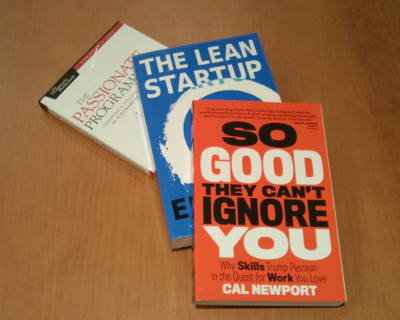Blog-- Thoughts on data analysis, software development and innovation management. Comments are welcome Post 74 The abridged build-measure-learn loop: innovate and seek excellence12-Feb-2013The principal objective of a tech startup (Research and Development also fit the shoes of tech entrepreneurship without loss of generality) is to learn how to build and run a sustainable business where value is created when a new technology invention is matched to customer need. Therefore, validated learning is a fundamental issue in this uncertain quest for success. Ideas are born of initial leaps of faith. But then, they need to be conceptualised, sketched, implemented, submitted for testing through a minimum viable product, and by making use of innovation accounting and actionable metrics, the results have to be evaluated and the decision must be made whether to pivot or persevere. It is true that simulation is useful to understand the impact of uncertainty on the distribution of expected outcomes, but the real world is much harder to debug than a piece of code and there is always the need to iterate a business idea with real people (i.e., prospect customers) in order to discover their actual needs. Similarly, in innovation management, it is said that the innovation that moves along the technology and market curves is incremental (persevere), in contrast to the innovation that is disruptive, which introduces a discontinuity and shifts to new curves (pivot). A pivot is a special kind of structured change designed to test a new fundamental hypothesis about the product, business model and engine of growth. It is the heart of the Lean Startup method (in fact, the runway of a startup is the number of pivots that it can do), which makes a company resilient in the face of failures (which are not mistakes, this is a different issue). However, there is (at least) one peril/caveat wrt the Lean Startup method (what's left out of the pivoting topic): if you do have true expertise in a particular field, you are then likely succeed and end up doing something of value for the customers you discovered, but this is no guarantee to be a rewarding experience to you. In that situation, you cannot do great work (unless you have a very wide band or changing taste, your work preferences will prevent you from doing a great job). We know from Steve Jobs that "the only way to do great work is to love what you do", so one might still need to pivot in that situation, too. Joel Spolsky also proclaims this message in his "careers badge": Love your job. Or else, pivot, and have a read at Cal Newport's book: So Good They Can't Ignore You, where it is supported that what you do for a living is much less important than how you do it, focusing on the hard work that is required to become excellent at something valuable instead of keeping pivoting until all variables fit your taste.
 In a recent podcast, though, Cal emphasises the importance of craftsmanship, which is somewhat contradictory because craftsmanship is rather associated with passion. Anyhow, it's a sensible link and it's always reasonable to bear in mind the reverse side of an argument. |
All contents © Alexandre Trilla 2008-2025 |